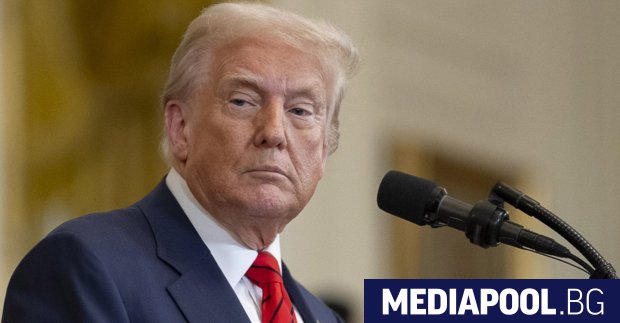Trump, Putin, and the Murky Path to Peace in Ukraine: An Archyde Analysis
Table of Contents
- 1. Trump, Putin, and the Murky Path to Peace in Ukraine: An Archyde Analysis
- 2. Trump’s Back-Channel Diplomacy with Putin: A High-Stakes Gamble?
- 3. The Energy Infrastructure Dilemma: A Brief Overview
- 4. Riyadh Consultations and the Black Sea Agreement: Progress or Mirage?
- 5. Putin’s “external Goverment” Proposal and Trump’s Ire
- 6. Dmitriev’s Diplomatic Dance in Washington
- 7. NATO and Security Guarantees: A Shifting landscape?
- 8. What compromise would you consider most crucial for a lasting resolution to the Ukraine conflict?
- 9. Archyde Interview: Decoding trump, Putin, and the Ukraine Peace Puzzle with Dr. Anya Petrova
- 10. The Trump-Putin Connection: A Delicate Tightrope
- 11. Energy Infrastructure and the Road to Ceasefire
- 12. dmitriev’s Diplomacy and the Sanctions Question
- 13. NATO, Security Guarantees, and the Future of Ukraine
- 14. Reader Interaction
By Archyde News Team – April 4, 2025
Trump’s Back-Channel Diplomacy with Putin: A High-Stakes Gamble?
As the war in Ukraine grinds into its second year, former U.S. President Donald Trump has once again positioned himself as a potential mediator,engaging in direct talks with Russian President Vladimir Putin. These discussions, taking place in the shadow of ongoing international condemnation and sanctions, raise critical questions about the future of the conflict and the role of the United States on the global stage.
Sources within Trump’s inner circle revealed that, at times, advisors have cautioned against direct, unfiltered communication with Putin, fearing it could undermine U.S. policy and embolden the Kremlin. The concern was that a call might not be “the best idea,” suggesting a level of internal dissent regarding Trump’s approach. Despite these reservations, trump has maintained contact, holding at least two calls with Putin after leaving the White House, specifically on February 12 and March 18.
The March 18 conversation reportedly focused on de-escalating the conflict in Ukraine. The Kremlin claimed Putin “agreed” with Trump’s proposal for a 30-day cessation of attacks on energy infrastructure. While Kyiv purportedly supported the initiative, both sides have since accused each other of violating the agreement, highlighting the fragility of any potential ceasefire.
The Energy Infrastructure Dilemma: A Brief Overview
| Date | Event | Implication |
|---|---|---|
| March 18, 2025 | Alleged Agreement | Brief respite in attacks, but quickly broken. |
| March – April 2025 | Mutual Accusations | Undermines trust,complicates negotiations. |
| Present | Continued Threat | Notable impact on Ukrainian civilians. |
Riyadh Consultations and the Black Sea Agreement: Progress or Mirage?
On March 24, U.S.-brokered consultations in Riyadh brought together representatives from Ukraine and Russia. The White House initially “reported” an agreement to ensure safe shipping in the Black Sea. However,the Kremlin quickly tempered expectations,stating that the agreement would onyl be implemented upon the removal of certain sanctions.this divergence in interpretation underscores the deep-seated mistrust and competing interests at play.
“We see that significant progress has already been made. Such as, under the guidance of Putin and Trump, an agreement was reached to actually terminate the impact on energy infrastructure between Russia and Ukraine, which is certainly the first such step in the de -escalation of Ukrainian conflict,”
Kiril Dmitriev, head of the Russian Fund for Direct Investment
The Black Sea agreement, in particular, is crucial for the U.S. because of the economic impact on global food supplies. Disruptions to shipping lanes through the Black Sea directly affect grain exports from Ukraine,a major supplier to many countries. This, in turn, can lead to higher food prices in the U.S., impacting consumers and potentially fueling inflation. If the sanctions were removed, hypothetically, this could lower global food costs by 5-10% within the U.S. market. This example drives home how seemingly distant geopolitical conflicts have tangible effects on Americans’ lives.
Putin’s “external Goverment” Proposal and Trump’s Ire
Adding fuel to the fire, Putin later suggested the imposition of an “external government” in Ukraine to oversee presidential elections and the signing of a peace treaty. This proposal reportedly “angered” Trump, who admitted he was “very angry
” after hearing Putin “discredit Ukrainian President Volodimir Zelenski.” Trump then blamed Russia for “delay[ing]” negotiations and threatened to impose new sanctions, specifically targeting Russian oil.
“if Russia and I cannot make a deal to stop the bloodshed in Ukraine and if I think Russia is guilty, […] I will impose secondary duties on all oil from Russia,”
Donald Trump
The threat of “secondary duties” on Russian oil carries significant weight. Such tariffs would not only impact Russia’s economy but could also drive up energy prices for American consumers, already grappling with inflation. Consider the implications: a 10% tariff on Russian oil could translate to a $0.20-$0.30 increase per gallon at the pump. These measures are powerful, but they have consequences that affect everyday americans.
Dmitriev’s Diplomatic Dance in Washington
Following Trump’s angry reaction, Kiril Dmitriev, head of the Russian Fund for Direct Investment (RPI) and a key negotiator for Russia, embarked on a trip to Washington. Dmitriev sought to smooth over the tensions, claiming to see “positive dynamics
” in U.S.-Russia relations, despite the need for further meetings to bridge the divide. He also stated in a press conference that he believes that both countries had, “made significant progress” on various topics, and that cooperation in the production of rare earth metals/ Arctic was also discussed.
Dmitriev’s visit underscores the complex dance between diplomacy and economic interests. The RPI, responsible for managing Russia’s sovereign wealth fund, has a vested interest in easing sanctions and fostering economic cooperation.His assertion that the Russian economy is thriving under sanctions—with a reported GDP growth of 4% compared to Europe’s 1%—is a point of contention. While sanctions have undoubtedly hurt Russia, the claim that they are beneficial is a position likely intended for domestic consumption.
NATO and Security Guarantees: A Shifting landscape?
Dmitriev further suggested that the Trump administration had implicitly accepted Russia’s opposition to Ukraine’s NATO membership. He added that “some security guarantees in some form could be an acceptable solution
.” This hints at a potential compromise were Ukraine’s security is assured through alternative means, perhaps through bilateral agreements or a neutral status.The implications of Ukraine not joining NATO for U.S. foreign policy would be huge, with the potential for changed alliances, or an altered relationship with Europe.
What compromise would you consider most crucial for a lasting resolution to the Ukraine conflict?
Archyde Interview: Decoding trump, Putin, and the Ukraine Peace Puzzle with Dr. Anya Petrova
Archyde News Editor, Archys, sits down with Dr. Anya Petrova, senior Fellow in International Relations at the Institute for Global Strategy, to discuss the complex interplay of diplomacy, energy, and global power dynamics in the ongoing Ukraine conflict.
The Trump-Putin Connection: A Delicate Tightrope
Archyde: Dr. Petrova, thanks for joining us. The article highlights former President Trump’s direct communication with Putin. How important are thes back-channel discussions in the context of international relations and the ongoing war in Ukraine?
Dr. Petrova: Thank you for having me. The direct talks are highly significant, tho fraught with risks. While the article portrays trump as potentially acting as a mediator, his approach, particularly unfiltered communication, could be interpreted as undermining established U.S. policy. It’s a gamble that could either break the impasse or further destabilize the situation.
Archyde: The article mentions that internal dissent existed regarding Trump’s approach. what type of concerns might his advisors have expressed?
Dr. Petrova: Advisors likely worried about undermining the carefully constructed international coalition against Russia. Unfiltered communication could be seen by allies as a lack of coordination and could also embolden Putin, misinterpreting the signals from the US.
Energy Infrastructure and the Road to Ceasefire
Archyde: The article details an alleged agreement concerning energy infrastructure attacks. How impactful was this supposed agreement, considering the subsequent accusations of violations?
Dr. Petrova: The brief “agreement” highlights the inherent fragility of any ceasefire negotiated in this climate. The rapid breakdown underscored the deep distrust between the parties. Any actual agreement on energy infrastructure would have profound consequences for the Ukrainian civilians living in affected areas.
Archyde: The article also mentions the economic effects a Black Sea agreement could have. Could you expand on how the Black Sea is linked to food prices and the impact on the U.S.?
Dr. Petrova: The Black sea is critical for Ukrainian grain exports, a major global food source. Disruptions ther exacerbate existing inflationary pressures and increase food prices worldwide. Sanctions removal might hypothetically ease these prices.
dmitriev’s Diplomacy and the Sanctions Question
Archyde: Kiril Dmitriev’s visit to Washington, where he discussed a potential solution, seems significant. Do you see this as an attempt to build bridges, and perhaps weaken the sanctions regime?
Dr. Petrova: Dmitriev’s visit is a clear sign of Russia’s attempts to manage relations and mitigate the impact of sanctions. The claim of economic resilience may be intended for a domestic audience.It’s significant to watch whether any softening of sanctions or any new economic initiatives are offered.
Archyde: The article briefly touches upon the potential re-imposition of sanctions by Trump. What impact could those sanctions have on the U.S. economy?
Dr. Petrova: Re-imposing strict sanctions on Russian oil, even without the level of total trade ban of the european Union would influence global prices, possibly impacting American consumers. A rise in gas prices in the U.S. could further fuel inflation, impacting household budgets. It’s a complex situation, but the links between foreign policy and domestic economic realities are on vivid display here.
NATO, Security Guarantees, and the Future of Ukraine
Archyde: Dmitriev hinted at Russia’s opposition to ukraine joining NATO, suggesting that alternative security guarantees could be acceptable. What does this mean for Ukraine’s future,and the U.S.’s role?
Dr. Petrova: Any guarantee that Ukraine will not become a member of NATO will affect the U.S.’s security policy. The implications are big, with possible shifts in alliances or relationships with Europe.It’s a critical issue that will remain a major point of discussion as long as this conflict continues.
Archyde: Looking ahead, what are the most crucial factors to watch regarding a potential resolution and future relationships within this turbulent landscape?
Dr. Petrova: Key factors include the evolving positions of both the U.S. and Russia, as well as the support and response of other international actors. We must also look at any changes that come from the european Union. The implications for the people of Ukraine are enormous and must remain the central focus. It is a tangled situation where diplomacy and the economic reality of the world combine together.
Reader Interaction
archyde: Dr. Petrova, thank you very much.We appreciate your insights. We’d like to ask our readers: Considering the stakes involved, what compromise would you consider most crucial for a lasting resolution to the Ukraine conflict? Share your thoughts in the comments below.








